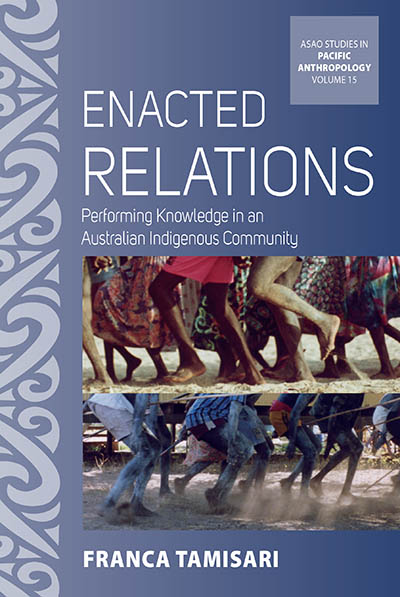“This is an excellent exploration and exegesis of Yolngu performance in all its varied forms from ceremonial to popular song and dance … This book is a highly satisfying and compelling read as its penetrating argument utilizes a sophisticated interweaving of theory and ethnography to demonstrate how learning ‘The Law’ is a foundational sense of being in and part of the boneland, (ngaraka), knowing the stories, being able to relate appropriately to kin and country and having the skills, knowledge, rights and ability to perform the songs and dances.” • Fiona Magowan, Queen’s University Belfast.
The Yolngu Indigenous people in the Northeast Arnhem Land of Australia respond to neo-colonial challenges by continuing to affirm their political autonomy and transmit ‘Yolngu Law’, which are ways of knowing and being with the younger generation. They deal with non-Indigenous institutions, through participation of bodies, language, things, images of movement and notions of mutual care, feelings and accountability. This book explores the Yolngu relational ontology and epistemology in the context of everyday practices, ritual ceremonies, bicultural education, vernacular Christianity and the production of popular music.
Franca Tamisari teaches Cultural Anthropology and is the Head of the Anthropology Program at Ca’ Foscari University of Venice. She has also lectured at the University of Sydney and the University of Queensland (1996-2004).
LC: DU125.Y64 T37 2024
BISAC: SOC002010 SOCIAL SCIENCE/Anthropology/Cultural & Social; SOC062000 SOCIAL SCIENCE/Indigenous Studies; SOC008030 SOCIAL SCIENCE/Ethnic Studies/Australian & Oceanian Studies


